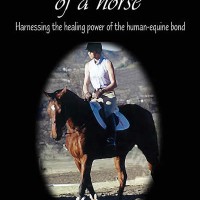More people than ever before are “connected”. Smart phones, iPads, laptops and video games seem the norm when forced to wait for any these days, even if the wait is only 3 minutes. Additionally, these connection devices have easily infested almost every area of our lives and people — so much so that to ask someone to put down the phone, shut off the computer or iPad, or disconnect the earbuds from their ears is like asking them to stop breathing. Most people will complain that without their device, they don’t feel “connected”. However, nothing could be farther from the truth.
When people connect through a device, like a phone, several things that accompany a face-to-face interaction are missing. Primarily, the emotional exchange that occurs when two people experience each other’s facial expressions and body language is missing. Otherwise known as “emotional contagion”, this syncing of expressed emotion has been demonstrated to have a calming effect on a person’s physiology.
And the very same thing happens when we interact with a horse. After all, a horse’s language is both 100% expressed through his body language, but also 100% not able to be disguised in any way. So a horse is also not able to buffer himself from our emotions in the way a person can distract — or be distracted — from another’s emotions. And because a horse is a large and imposing animal — with inherent danger to us — we are compelled to address his behavior, and consequently, our own.
When people don’t communicate in person, vulnerability, another aspect of communication, is lost. To be vulnerable to another person is to be exposed to that person, and in doing so, subject oneself to any number of judgements. But it is also in allowing ourselves to be vulnerable that we also allow ourselves to be understood. And without being understood, connection becomes nothing more than a fantasy.
Unfortunately, for many people the idea of being fully accepted — faults and all — is nothing more than a fantasy. However, this is also the reason many people have pets. Animals, and horses, do not carry the risk of judgement that people do, and it is in their presence that many people feel their most whole.
And learning to unplug is about learning to feel complete, whole, and at peace, with nothing to distract you from yourself and your feelings. But in order to learn this, we must also learn to experience our emotions fully, and in doing so understand them. We must also learn to be vulnerable, to be exposed, and have the willingness to bear the risk of judgment, in order to really connect.
As simple as these things may sound, I assure you they are not. Yet we can learn them. Equine therapy is not just about being with a horse; it is about being with yourself. And that, it turns out, may just be harder.
Best,
Claire Dorotik LMFT
